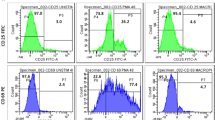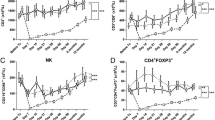Abstract
As our knowledge of the cytokine network in experimental transplant models grows, we need to understand how and to what extent cytokines mediate the various donor-directed immune events in clinical situations. This overview of clinical cytokine measurements shows that specific intragraft cytokine messenger RNA (mRNA) expression profiles can be associated with acute rejection, that they may reflect the efficacy of immunosuppression, and that they can identify patients at risk for the development of early chronic rejection. The literature also shows that acute rejection and immunological quiescence in humans are not restricted to the cytokine patterns defined in the type 1/type 2 paradigm. This apparent lack of association may be caused by the immunosuppression used in the clinic but may also be the result of the infinite diversity of donor and recipient factors, in which polymorphisms in cytokines and cytokine receptor genes may play a central role.
Similar content being viewed by others
Author information
Authors and Affiliations
Additional information
Received: 15 July 1997 Received after revision: 5 January 1998 Accepted: 14 January 1998
About this article
Cite this article
Baan, C., Weimar, W. Intragraft cytokine gene expression: implications for clinical transplantation. Transpl Int 11, 169–180 (1998). https://doi.org/10.1007/s001470050124
Issue Date:
DOI: https://doi.org/10.1007/s001470050124




